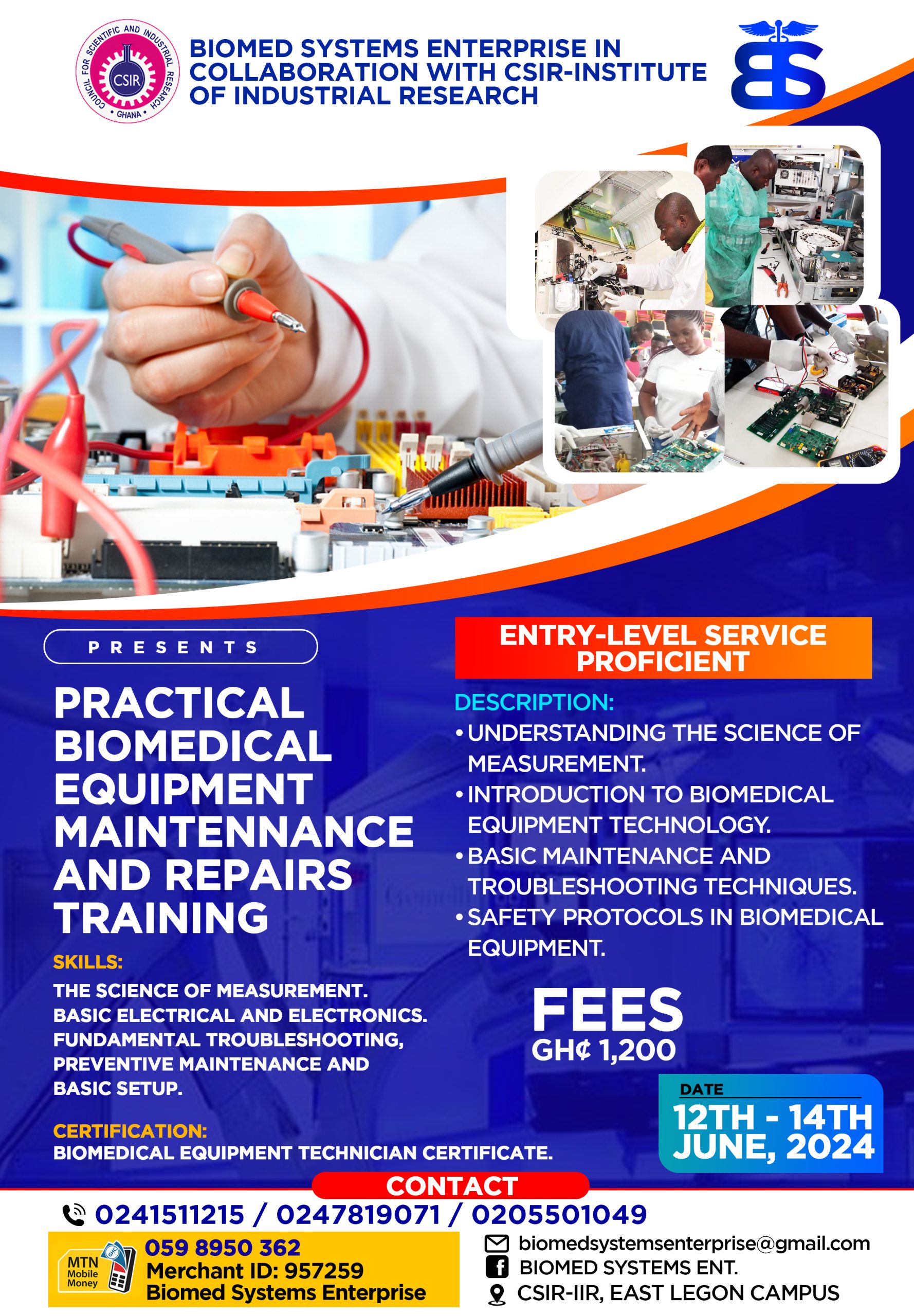Message For You: God’s Word For Meditation And Divine Reflection.

Message For You: Gods Word For Meditation And Divine Restoration.
Heman and Jeduthun
‘Heman and Jeduthun…chosen by name to give thanks to the Lord.’ 1 Chronicles 16:41 NLT
Heman and Jeduthun were two of the Bible’s more inconspicuous characters. They were appointed by King David to give thanks. It was literally their job. And it’s our job too! We’re under the authority of the King of Kings who commands us to ‘be thankful’, ‘offer to God thanksgiving’, ‘come before his presence with thanksgiving’, ‘enter into his gates with thanksgiving’, and ‘in everything give thanks; for this is the will of God in Christ Jesus for you’ (Colossians 3:15; Psalms 50:14; 95:2; 100:4; 1 Thessalonians 5:18 NKJV).
Nothing is more thrilling than being moved to worship spontaneously. It doesn’t matter what our style of worship is – whether we lift our hands, cry out, laugh, sing, dance, whatever – if we do it in a spirit of praise, thanksgiving and gratefulness, God will absolutely love it. Praise and thanksgiving bring peace to a troubled heart and tranquillity to an anxious mind. The Creator of our souls is a master psychologist; he knows that thanksgiving is necessary and therapeutic. It’s hard to be thankful and at the same time be grumpy, critical or bad tempered.
Let’s choose to overflow with thanksgiving. ‘Shout to the Lord, all the earth. Serve the Lord with joy; come before him with singing…Come into his city with songs of thanksgiving and into his courtyards with songs of praise…The Lord is good. His love is forever, and his loyalty goes on and on’ (Psalm 100:1-5 NCV).
So what now? Do yourself a favour – choose to praise and give thanks! It is designed to give you strength, joy and new perspective.
Coping with crisis (1)
‘When my spirit was overwhelmed…you knew my path.’ Psalm 142:3 NKJV
How we handle a crisis determines whether we come out of it feeling overwhelmed or stronger. Here are some ways to get through crisis well:
(1) Acknowledge our feelings. David said, ‘When my spirit was overwhelmed…you knew my path’ (Psalm 142:3 NKJV). God already knows how we feel, which gives us freedom to go through the process of healing and recovery with him. (2) Confide in someone. It’s helpful and valuable to open up to those who love and care about us: ‘A friend always loves, and a brother is born to share trouble’ (Proverbs 17:17 GWT). (3) Start a journal. Writing about an issue helps us let go, reorder our thoughts and process the situation. And it gives us a record to look back on and gain a better understanding of where God was at work in the situation.
(4) Avoid blame-shifting. There are times when it’s important to point out people’s mistakes, but we need to acknowledge if we ourselves are blame-shifting and take responsibility for our own part in a crisis situation. (5) Forgive ourselves. We all make mistakes. When we do make a mistake, it’s healthy to acknowledge it, ask God for forgiveness, then forgive ourselves and move on. God says that when he forgives, he does not remember our sins (see Isaiah 43:25); we should do the same.
So what now? Why not consider writing a journal of your faith journey? Document the positive things and the disappointments. Use your journal to look back and see where God was faithful and what he was teaching you through the challenges.
Coping with crisis (2)’
Keep on growing in knowledge and understanding.’ Philippians 1:9 NLT
When we’re in a crisis situation, having a positive attitude is critical to get through it. Here are some ways to help us achieve that:
(1) Look for ways to use the experience for something positive. Resilient people use their experience to help others. ‘[God] comforts us when we are in trouble, so that we can share this same comfort with others in trouble’ (2 Corinthians 1:4 CEV). (2) Check our priorities. ‘Teach us to use wisely all the time we have’ (Psalm 90:12 CEV). How would we spend our time differently? Who would we most like to spend it with? How can we use our strengths to serve others? (3) Believe we can overcome. A crucial aspect of resilience is faith that God brings us through crisis. Even if we have great practical skills, we still need to lean on God bring us through well.
(4) Step out of our comfort zone. ‘Keep on growing in knowledge and understanding’ (Philippians 1:9 NLT). Learning something new, like a foreign language, sport or hobby, can help build our confidence. Embracing the unfamiliar strengthens our capacity to handle new situations. (5) Clear the weeds that are choking our optimism. Let’s acknowledge pessimistic and negative thoughts and reframe our perspective. Consulting God helps us gain insights into his perspective and discover steps we need to take towards solutions.
So what now? Think about a crisis or challenge you’ve faced. Ask God to show you what you learned from that experience, then consider how to use that knowledge to help someone in a similar situation.
Caring well for each other
‘We are all members of the same body.’ Ephesians 4:25 GWT
It is easier to say nothing when others are messing up; but it’s not the loving thing to do. The Bible tells us that, ‘Giving an honest answer is a sign of true friendship’ (Proverbs 24:26 CEV).
This is what the apostle Paul advised: ‘If someone in your group does something wrong, you who are spiritual should go to that person and gently help make him right again’ (Galatians 6:1 NCV). More often than not, when an issue arises that might cause tension, it’s glossed over to preserve the peace. We don’t want to ruffle any feathers, so the issue is not resolved. This is what Paul said: ‘Speak the truth to each other, because we are all members of the same body’ (Ephesians 4:25 GWT). But let’s be clear – honesty doesn’t give us permission to be rude or hurtful and say whatever we want. Thoughtless words can wound people. ‘Do not speak angrily to an older man, but plead with him as if he were your father. Treat younger men like brothers, older women like mothers, and younger women like sisters’ (1 Timothy 5:1-2 NCV). In short, we should be thoughtful and gracious in the way we speak and the words we use.
When a difficult issue comes up, caring means getting involved in an honest and loving way.
So what now? Ask a trusted friend to be a care-partner – agree to pray regularly for each other and to honestly and gently point out when you see each other making mistakes or taking a step that could lead away from God’s path.
Our highest priority
‘We must be more careful to follow what we were taught.’ Hebrews 2:1 NCV
As believers, our highest priority is our relationship with God: this ensures that our lives are in the best place. There’s an illustration of this in a parable in the Old Testament. A soldier was given custody of an important prisoner. He was told, ‘Guard this man; if for any reason he gets away, you will either die or pay a fine of seventy-five pounds of silver’ (1 Kings 20:39 NLT)! In spite of the warning, the soldier allowed his prisoner to escape. How did it happen? Through carelessness and busyness. ‘”While I was busy doing something else, the prisoner disappeared!.” “Well, it’s your own fault,” the king replied. “You have brought the judgment on yourself”‘ (1 Kings 20:40 NLT).
Keeping our spiritual priorities in place is our responsibility. What can we do to ensure we get our priorities right? Spending time with God at the start of the day is a great way to put him first – remembering to take time to listen for his direction and wisdom before we rush into the day. Even Jesus did that: ‘Jesus often withdrew…and prayed’ (Luke 5:16 NIV).
Without God’s input, we’ll never fully sense his presence or be equipped to handle what he has in mind for us. Spending time with him is the gateway to hearing from him and doing his will. There are no shortcuts in building our relationship with God.
So what now? In the busyness of your day, it’s easy to allow many things to take priority. Ask Jesus for your own personal strategy to keep him as your top priority.
God will make it work
‘God always does what he plans.’ Ephesians 1:11 CEV
Joseph’s brothers made a wrong decision by resenting him. Potiphar’s wife made a wrong decision by falsely accusing him. And the butler made a wrong decision by turning his back on him. But God arranged every step Joseph took, all the way to him becoming the pharaoh’s highest official. After years apart, Joseph stood face-to-face with the brothers who had treated him so badly, and said, ‘You meant to hurt me, but God turned your evil into good to save the lives of many people’ (Genesis 50:20 NCV).
Joseph discovered three things through his experience, which we can also take on board: (1) When God wants us in a palace, nobody can keep us in a prison. (2) Our future isn’t in the hands of others; it’s in the hands of God. (3) Our God-given assignment in life doesn’t require the cooperation or approval of everyone, but it does need our cooperation. God’s purposes will eventually overcome human plans. No one can stop God using us, blessing us and giving us success – except ourselves. So let’s keep our hearts and our attitudes right.
In the Bible it says, ‘God also decided ahead of time to choose us through Christ according to his plan, which makes everything work the way he intends’ (Ephesians 1:11 GWT). Let’s look for the hand of God in everything – even when things look impossible or unfixable, he’ll make it work.
So what now? God’s plan for your life is destined for good. Today, recommit to entrusting your life to him, knowing that he always does what he plans.
Problem solving with God
Friday 16th December 2022
‘The Holy Spirit…will teach you everything.’ John 14:26 NLT
Here’s some biblical wisdom for problem solving. First, listen to the Holy Spirit within us. Jesus said the Holy Spirit will ‘teach you everything and will remind you of everything I have told you’ (John 14:26 NLT). Let’s trust what he has told and shown us to take the next step.
Second, spend time with God each day: ‘I have asked one thing from the Lord… to remain in the Lord’s house all the days of my life… he hides me in his shelter when there is trouble’ (Psalm 27:4-5 GWT). Even when things are going wrong, God’s sheltering presence is an oasis of peace. If we spend time with him in prayer and praise every day, we won’t have to run far to find him when problems appear. Alone time with God helps restore our perspective and see problems from his point of view.
Third, don’t be too proud to seek advice and assistance. There are times when we need to lift others, and times when we need to be lifted. A paralysed man couldn’t get himself to Jesus, so his friends took him (see Luke 5:18-25). David turned to the men of Issachar because they ‘knew what Israel should do, and they knew the right time to do it’ (1 Chronicles 12:32 NCV). When God provides help through people, let’s reach for it.
So what now? Are you wrestling with a problem? Take it to God and ask for his perspective, and for wisdom in finding an answer. Remember to listen to what he says, and to act on his advice.
God’s restorative power
‘You will surely recover everything that was taken from you!’ 1 Samuel 30:8 NLT
While David and his men were off fighting, the Amalekites destroyed their homes and took their families captive. First, David’s army wept. Second, they looked to David for guidance. Third, David looked to God, saying, ‘”Shall I chase them?… the Lord told him, “Yes, go after them; you will recover everything that was taken from you”‘ (1 Samuel 30:8 TLB)!
Here are four things to keep top of mind: (1) Satan will attack our loved ones to get to us. It may be big stuff like a parent losing their job or someone becoming ill; or low-grade family tension and lack of consideration. We need to stay alert and discern the enemy’s attacks so we can counteract them. (2) Love people but lean only on God. The people David fought side by side with turned against him. That’s why our strength, strategies and solutions must come from God. (3) Talk to God. ‘David found strength in the Lord his God’ (1 Samuel 30:6 GWT). When we talk to God, the one who can change our situation, his words will strengthen and uplift us. (4) We can get back what we’ve lost. God told David, ‘Go after them; you will recover everything that was taken from you”‘ (1 Samuel 30:8 TLB)! And what God did for David and his men, he can do for us, if we seek him.
So what now? Do you know someone who’s lost a loved one, a job, a great opportunity? Make time to speak words of encouragement over their situation and remind them of God’s love and restorative power.
Pray for discernment (1)
‘They knew what Israel should do, and they knew the right time to do it.’ 1 Chronicles 12:32 NCV
William Orton, the president of Western Union, rejected an offer to buy the patents for the first telephone. The University of Southern California’s film school rejected an application (possibly several times) from Steven Spielberg. The technology company HP was offered the design of the first Apple computer, but chose not to take it up. It seems these people and organisations may have lacked discernment and missed some great opportunities.
When it comes to seeing life’s opportunities and solving life’s problems, discernment is key. It enables us to get to the heart of the matter, which helps us to make the best decisions for a particular situation. God promises us discernment, if we ask for it: ‘If you cry out for discernment… then you will understand the fear of the Lord, and find the knowledge of God’ (Proverbs 2:3-5 NKJV). Some of Israel’s greatest victories happened when David was king. One of the keys to these successes was in the discernment of his team: ‘There were two hundred leaders from Issachar. They knew what Israel should do, and they knew the right time to do it’ (1 Chronicles 12:32 NCV).
Discernment enables us to see doors of opportunity in what appears to be a solid brick wall. So, let’s ask God for the gift of discernment.
So what now? Each day for the next week (and longer if you can), start your morning by praying, ‘Lord, help me to face everything that happens today with discernment. Help me to perceive opportunities, discover solutions to problems and apply your wisdom in every situation.’
Pray for discernment (2)
‘I ask that you give me a heart that understands.’ 1 Kings 3:9 NC
‘The Lord appeared to [Solomon] in a dream… God said, “Ask for whatever you want me to give you”‘ (1 Kings 3:5 NCV). Solomon said, ‘I ask that you give me a heart that understands, so I can rule the people in the right way and will know the difference between right and wrong’ (1 Kings 3:9 NCV). Next, we read, ‘The Lord was pleased that Solomon had asked this’ (1 Kings 3:10 NCV). But God hadn’t finished talking to Solomon: ‘I will also give you what you did not ask for: riches and honour. During your life no other king will be as great as you’ (1 Kings 3:13 NCV). Discernment made Solomon a great king.
God’s word tells us: ‘Trust in the Lord with all your heart, and lean not on your own understanding; in all your ways acknowledge him, and he shall direct your paths’ (Proverbs 3:5-6 NKJV). There are two kinds of discernment: natural discernment and spiritual discernment. The first can fail us; the second never will. When natural discernment can’t take us any further, spiritual discernment enables us to keep going with faith and confidence.
How do we recognise the difference between natural and spiritual discernment? James tells us, ‘The wisdom that comes from God is first of all pure, then peaceful, gentle, and easy to please. This wisdom is always ready to help those who are troubled and to do good for others. It is always fair and honest’ (James 3:17 NCV).
So what now? Today, ask God to grow his discernment in your life.
Pray for discernment (3)
‘They are mature enough to know the difference between good and evil.’ Hebrews 5:14 NCV
In the 1940s, Switzerland manufactured 80 per cent of the world’s watches. Then in the 1960s, when an inventor presented his idea for a new type of watch to the leaders of a Swiss company, they rejected it. All the other Swiss companies he approached did the same. They lived by the philosophy, ‘If it ain’t broke, don’t fix it!’ But the inventor believed in his design, and took it to a company in Japan. The name of the company was Seiko, the design of the watch was digital, and guess what? Sales of digital watches soon outstripped the traditional analogue ones. One discernment-driven decision changed the face of a whole industry.
God-given discernment is even more powerful! Two things about it: (1) It’s shaped by Scripture. ‘People who live on milk are like babies who don’t really know what is right. Solid food is for mature people who have been trained to know right from wrong’ (Hebrews 5:13-14 CEV). Spending time in God’s word, reading it, studying it, reflecting on it and asking questions about it will help us develop our level of discernment. (2) It’s sharpened by use. The more we use discernment, the more competent we become. Like a muscle, the more we flex and stretch it, the stronger it grows.
The Bible also refers to ‘discerning of spirits’, or attitudes and motivations (see 1 Corinthians 12:10). What an advantage to have! Let’s pray for the gift of discernment and use it at every opportunity.
So what now? Today, pray, ‘Father, help me to exercise my spirit of discernment.’
God’s wisdom on money (1)
‘When the Lord blesses you with riches, you have nothing to regret.’ Proverbs 10:22 CEV
There are more than two thousand verses in the Bible on handling money and possessions. It’s an important issue. An often-quoted verse about money says this: ‘The love of money causes all kinds of trouble. Some people want money so much they have given up their faith and caused themselves a lot of pain’ (1 Timothy 6:10 CEV). God is not opposed to us having money, he is concerned about how we earn it and use it.
God’s word says, ‘Money wrongly gained will disappear bit by bit; money earned little by little will grow and grow’ (Proverbs 13:11 CEV); and ‘A person who gets ahead by oppressing the poor or by showering gifts on the rich will end in poverty’ (Proverbs 22:16 NLT). God expects those who ‘labour’ to give a good day’s work, just as he expects those in management to pay a good day’s wage. The workforce enables the management to make a profit, while the management enables the workforce to make a salary. An honestly-made profit and a well-earned salary are pleasing to God.
God’s word tells us: ‘When the Lord blesses you with riches, you have nothing to regret’ (Proverbs 10:22 CEV). Let’s conduct our money affairs and handle our possessions honestly and wisely in a way that honours God.
So what now? When it comes to earning money, ask God to fill your heart with a desire to earn it in a way he approves of, even if it means taking a longer, harder or seemingly less profitable route. You will not regret it.
God’s wisdom on money (2)
‘God…gives you the ability to produce wealth.’ Deuteronomy 8:18 NIV
Moses told the Israelites: ‘Don’t say, “I’m rich, and I’ve earned it all myself.” Instead, remember that the Lord your God gives you the strength to make a living’ (Deuteronomy 8:17-18 CEV). Yesterday’s reading emphasised how the right way to earn money is through honesty and hard work. Today, Moses’ words remind us that the ultimate source of our money is God. We need to give him thanks and glory for blessing us with the skills to do a good job and earn money.
It’s great to feel satisfied about a job well done, and it’s not wrong to feel proud about our work. Paul told Timothy, ‘Be a good workman, one who does not need to be ashamed when God examines your work’ (2 Timothy 2:15 TLB). If we stop caring, we won’t be inclined to put the effort into doing a good job. But we need to watch out for pride that takes the spotlight on ourselves, forgetting God’s involvement.
So, what can we do to keep our God-focus for our work and wealth? We can keep this verse top of mind: ‘Do your work willingly, as though you were serving the Lord himself’ (Colossians 3:23 CEV). When we realise God’s the source of everything we have, we’ll want to praise him more and more.
So what now? Each day, in whatever work you do, especially those tasks you don’t really like doing, pray, ‘Father, I thank you for blessing me with the ability to do it. Help me to turn it into an act of praise for your glo
Send Stories | Social Media | Disclaimer
Send Stories and Articles for publication to [email protected]
We Are Active On Social Media
WhatsApp Channel: JOIN HERE
2024 BECE and WASSCE Channel - JOIN HERE
Facebook: JOIN HERE
Telegram: JOIN HERE
Twitter: FOLLOW US HERE
Instagram: FOLLOW US HERE
Disclaimer:
The information contained in this post on Ghana Education News is for general information purposes only. While we endeavour to keep the information up to date and correct, we make no representations or warranties of any kind, express or implied, about the completeness, accuracy, reliability, suitability or availability with respect to the website or the information, products, services, or related graphics contained on the post for any purpose.




 How to apply for 2024/2025 recruitment at GES recruitment portal
How to apply for 2024/2025 recruitment at GES recruitment portal  GPA raises concerns over NaCCA books assessment & approval role
GPA raises concerns over NaCCA books assessment & approval role  GES ranked 3rd in 2023/2024 Excellence Awards for MoE agencies
GES ranked 3rd in 2023/2024 Excellence Awards for MoE agencies